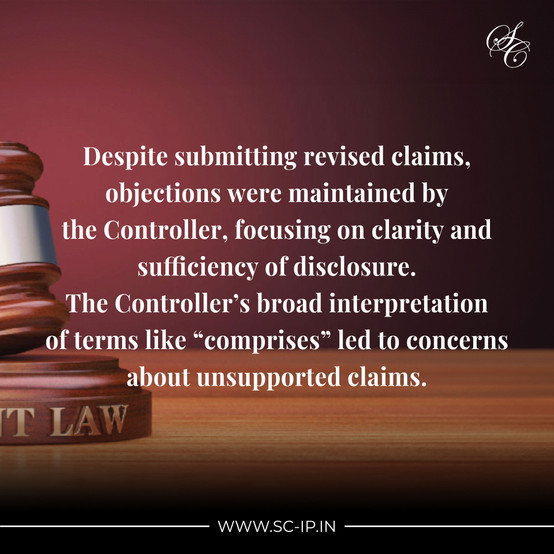Appeal challenging rejection order of a Patent
- SC IP
- Dec 5, 2023
- 2 min read
The Board of Trustees of the Leland Stanford Junior University and Department of Veterans Affairs (“Appellants”) filed an application for grant of a patent for the invention titled “polynucleotide library for sequencing, analyzing and utilizing single samples”. The application was examined and objected to under Sections 2 (1) (ja), 3(c), 3(d), 3(e), 3(i), 3(j), and Sub-Sections 4 & 5 of Section 10 of the Patents Act, 1970 (“Act”). The Appellants subsequently filed 17 amended claims to overcome the objection. The application, including the amended claims, was examined, and subsequently refused by the Assistant Controller of Patents and Designs, Chennai (“Controller”) on the grounds that the disclosure in the amended claims as well is not clear and sufficient.
The Appellants, in their appeal, highlighted deficiencies in the Controller’s treatment of objections. The Appellants also argued that it was on the Controller to show how the 69 working examples did not satisfy the requirements of Section 10(4) of the Act.
The Controller, in its response, submitted that the Appellants had couched the patent claims in very broad terms and used expressions such as “comprises”, which, as per the Patent Office, offered numerous possible permutations and combinations that may or may not show the intended results since they had not been amply disclosed as per Section 10(4) or 10(5) of the Act.
The Court perused the order and ruled that the Controller’s order lacked specificity in addressing the insufficiency of disclosure. It did not pinpoint which claims were unsupported or insufficiently supported within the context of the complete specification and the 69 working examples provided.
The Court, consequently, set aside the refusal order and remanded it back under specific terms:
Reconsideration by an officer different from the one issuing the impugned order to avoid pre-determination.
Issuing a reasoned decision within four months after allowing a reasonable opportunity to the appellants.
No expression of opinion on the case’s merits in this order.
This direction aimed to address the lack of specificity in the rejection and to provide a fair opportunity for reconsideration without pre-determined biases.









Comments